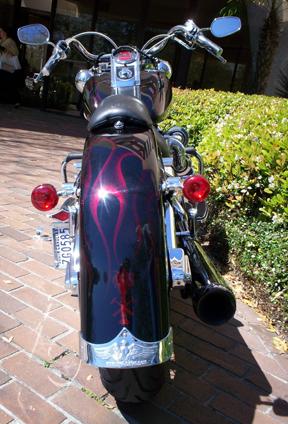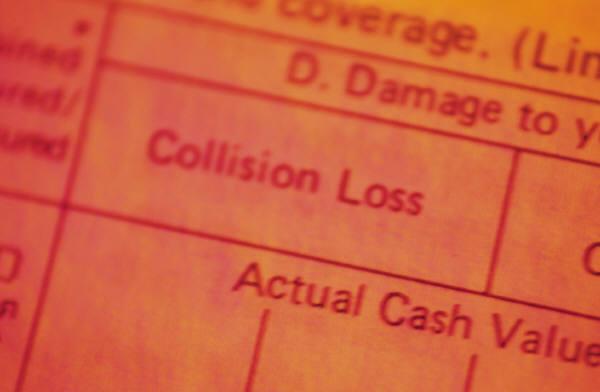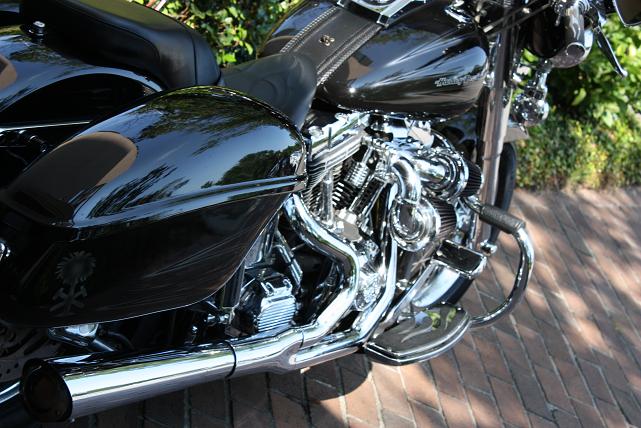We’ve written several blog posts in the past that inform our readers about motorcycle safety tips. Today, we’d like to share a great video on how to find a motorcycle helmet that works for you and provides you with the most comfort and protection possible.
As we all know, it can be a challenge finding a helmet that fits in your price range and protects you from injuring yourself. In the below video, you’ll find out what features to look for when helmet shopping and understand what elements make a helmet effective.
See below for this video:
Educating yourself about South Carolina law is always a smart idea. When you can speak knowledgeably to a law enforcement officer or state or government official, you’ll find yourself feeling more confident and entitled to your rights.
Below are a few of our favorite resources for researching the law and staying informed about state and federal government:
South Carolina State House website: If you are ever unsure of South Carolina laws, this is a great website to find legislation pertaining to your needs. The site also offers information on the process of legislation process, as well as senate and house information.
United States Courts website: This is an excellent website to use if you’re looking for bankruptcy resources, court records, federal rulemaking, and other elements pertaining to the judicial system.
And, if you ever have to appear in court for catastrophic injuries, criminal defense, or any other suit, it’s a good idea to improve your court literacy and stay in the know.
Find Law website: This website provides a holistic approach to the law and is the perfect place to find everything from legal resources to lawyers in your area, and legal answers to legal forms.
When researching law, always remember that even though you can educate yourself and understand your rights as a citizen, it’s always important to seek out additional legal assistance when needed. For example, if you are ever in an accident, are charged with a DUI, receive unfair treatment in the workplace, or any other serious issue, hiring a lawyer to investigate and use additional resources to ensure you receive full compensation is important.
 If you’re involved in a motorcycle accident and you do not have a legal representative, it’s important to get one immediately. When you have a personal injury attorney available to investigate your case, he or she will interview witnesses, take photographs of the accident scene and other vehicles involved.
If you’re involved in a motorcycle accident and you do not have a legal representative, it’s important to get one immediately. When you have a personal injury attorney available to investigate your case, he or she will interview witnesses, take photographs of the accident scene and other vehicles involved.
An excellent personal injury attorney will also ensure that you receive proper medical care with zero out-of-pocket expenses. Your attorney will then prepare documents and information to help you receive an appropriate settlement. If the personal injury attorney believes that your case needs to go to trial, then he or she will prepare it to do so.
If you’ve put off filing a lawsuit after a motorcycle accident, you still might have time to file. South Carolina law states that you have at least 2 years from the date of an accident to file your lawsuit and serve on the “at fault” party.
Depending on your claim, your settlement and injury compensations will differ. Money and compensation you receive from lawsuits are typically based on medical expenses and other elements of injury and / or damage incurred from the motorcycle accident.
Want to learn more about South Carolina law? Like us on Facebook.
 Receiving compensation after a motorcycle accident can be a challenge for many individuals who do not fully understand their insurance coverage. This can cause even more stress on an individual’s life, in addition to their previous accident.
Receiving compensation after a motorcycle accident can be a challenge for many individuals who do not fully understand their insurance coverage. This can cause even more stress on an individual’s life, in addition to their previous accident.
When you don’t know the facts about your insurance policy, you run the risk of your insurance provider taking advantage of your situation and benefiting from your lack in understanding your insurance policy. This can result in low compensation for your motorcycle accident.
You’ll find some of the highest accident compensation with your uninsured / underinsured motorist coverage. This coverage ensures that you receive compensation for accidents where you were not at fault and the at-fault driver is underinsured or uninsured. This may also involve hit-and-run accidents.
Whether you’re driving a motor vehicle, motorcycle, or are involved in a pedestrian accident, South Carolina law ensures uninsured / underinsured coverage is applied. In order to receive the compensation you and your family are entitled to, it’s important to be educated on your policy and uninsured / underinsured motorist policies. In cases where you are unsure of your rights and the compensation you are entitled to, contact a local South Carolina motorcycle accident attorney or personal injury lawyer.
Know of anyone who would benefit from this article? Share it with them on Facebook.
As you might already be aware, there is no South Carolina law that requires motorcyclists to wear helmets. However, although you’re not required to wear helmets, it’s always a good idea to wear one for safety purposes. Motorcycle accidents are just that, accidents. You can’t prevent the way others drive on the road. Even if you’re a highly experience biker, there is always the chance of being involved in a motorcycle accident with a motor vehicle or other bike.
 Image above taken from Motorcycle-Superstore.com.
Image above taken from Motorcycle-Superstore.com.
When you wear a helmet, not only can you prevent severe brain damage, but you can also prevent death. If you’re ever in a motorcycle accident and your head smacks the ground, curb, or any other brain object, the brain rattles against the scull, which can cause internal bleeding or swelling—all of which can lead to death or lifetime brain injury. In order to prevent impact, a motorcycle helmet is required.
A helmet is comprised of an outer shell and an inner lining that works by absorbing energy. The inner lining is the most important component of a helmet, since it is the element that absorbs the impact. The lining controls the movement of your head and absorbs energy that would force your head from side to side.
And it’s always a good idea to get a full-coverage helmet to prevent facial abrasions in case of an accident.
Want to receive more motorcycle safety tips? Sign up for our blog RSS feed.
The United States is one of the most gorgeous countries to explore on a motorcycle.
Here are a few of our favorite motorcycle getaways in the U.S.:
Just four miles north of the Golden Gate Bridge toll plaza, Highway 1 escapes the diligence of U.S. 101 and snakes its way toward the white sands of Stinson Beach. The ride will take you inland over rolling, grassy hills and into vast forests of Bishop pine, then back over to the coast to vertigo-inducing views of the steep, craggy shoreline.
Connecting the vast portions of untamed back country are tiny towns and villages. Almost all offer fuel, food, and lodging. Each establishment–from bed and breakfast to beach bungalow–is personalized by private ownership. There are many overnight facilities scattered along the coastline. You can stay as a guest in a farmhouse or be a recluse in your own remote, solar-powered cabin. The choices are extensive, but in the peak summer months the place is booked up.
COLORADO: San Juan Skyway
The San Juan Skyway is a 236-mile ride that may well be the most scenic loop in America. You’ll find it 90 miles from Grand Junction or 250 miles from Pueblo. The route incorporates five passes, countless ghost towns and a smattering of some of the finest former mining towns in the West, as well as the historic Million Dollar Highway–-the miraculous road, which crosses Red Mountain Pass at 11,018 feet.
There is no doubt the Million Dollar Highway is the jewel of the San Juan crown, so take your time. There are many, many pullouts that allow you to enjoy the breathtaking views and explore the old ghost towns and mining facilities. The route continues onto Telluride. The popular ski resort destination also showcases a well-preserved historic section that should not be missed.
TEXAS: Hill Country
While most people think the Lone Star State is an endless dry, flat, windy road, the Hill Country, with its tempting hills and canyons, is perfect for two-wheeled exploration. Follow Highway 83 up to a higher altitude where the temperature cools creating an ideal climate for lush pinon, juniper and oak trees. The roads of hill country are fantastic for all types of riding. Many are straight or sweeping and a few offer challenging corners. All are hugely scenic and deliver you to an assortment of wonderful villagelike towns and historic hamlets.
GEORGIA: North Georgia Mountains
In Northern Georgia, not two hours above bustling Atlanta, the land begins to gently tumble and swell. The legendary Blue Ridge Mountains begin here–part of the Appalachian Range that extends all the way to Maine. It seems to be a secret that the Georgian landscape includes such voluptuous assets, and as a result these mountains and the roads winding amongst them are usually quite empty.
This road offers some gentle sweeping corners, but most of it is challenging, with 25-mph S-curves and plenty of exciting elevation changes. The Parkway is a 24-mile run that ends at Wolf Pen Gap Road (state Route 180). Some say this is the most curvaceous road in Georgia.
The fact is, you can’t make a wrong turn when you’re riding in the Chattahoochee area. Road surfaces are generally excellent, though soft, sloping shoulders common to this region don’t allow much room for error. Along with the scars of the Civil War and the ghosts of the Cherokee Nation, this motorcycle playground will remain a refuge for years to come.
FLORIDA: Everglades to Key West
Most of this country’s universally favored motorcycle roads have corners, don’t they? Not so with the Keys–just 120 miles of 360-degree majesty so captivating you might fall off your bike trying to swivel your head in all directions. Expect low speed limits and nary a passing opportunity, too. It’s key to sink into the situation and not feel rushed.
The motorcycle ride takes you through the islands–Key Largo, Islamorada, Windley Key, Upper Matecumbe Key and Lower Matecumbe Key. By the time you reach Marathon and the famous Seven Mile Bridge–the longest segmented bridge in the world–you’re in the Middle Keys and starting to feel a real tropical vibe. This quieter section of the Keys, with its mom-and-pop restaurants, retro lodging and camping retreats, will suit some more than what’s to come in Key West.
There are plenty of places to eat and stay, but lodging can be pretty pricey all year, and reservations are recommended. There is no real “season,” though I’d recommend winter, when the rest of the world is wearing wool. For better or worse, the road is absolutely straight and flat (the highest elevation on the islands is a whopping 18 feet). Still, it’s the most unusual stretch of road you’ll find in America.
Want to find the best places in South Carolina to ride? Visit our blog post on Best South Carolina Motorcycle Routes.
 News stories have been circulating online for the past few days regarding Federal Officials wanting to standardize helmet laws in all states. The National Transportation Safety Board wants to approach all states that lack a mandatory helmet law to enact one for every motorcycle rider and passenger on the road.
News stories have been circulating online for the past few days regarding Federal Officials wanting to standardize helmet laws in all states. The National Transportation Safety Board wants to approach all states that lack a mandatory helmet law to enact one for every motorcycle rider and passenger on the road.
South Carolina law SECTION 56-5-3660 states that “Helmets shall be worn by operators and passengers under age twenty-one; helmet design; list of approved helmets.
It shall be unlawful for any person under the age of twenty-one to operate or ride upon a two-wheeled motorized vehicle unless he wears a protective helmet of a type approved by the Department of Public Safety. Such a helmet must be equipped with either a neck or chin strap and be reflectorized on both sides thereof. The department is hereby authorized to adopt and amend regulations covering the types of helmets and the specifications therefor and to establish and maintain a list of approved helmets which meet the specifications as established hereunder.”
According to an article in the Post & Courier, “The (National Transportation Safety Board) said there were 4,400 motorcycle deaths in the U.S. last year, more than in all aviation, rail, marine and pipeline accidents combined. Head injuries are the leading cause of death in motorcycle crashes.” (read the full Post & Courier article here).
If the National Transportation Safety Board were to enforce the mandatory helmet law, it would mean that South Carolina helmet law would change to require all motorcyclists and their passengers to wear helmets—no matter their age.
What is your opinion on federal mandated helmet laws?
This is my third blog post in a series dedicated to reviewing the South Carolina motorcycle laws pertaining to the rights and duties of bikers.
SECTION 56-5-3650. Footrests; rear view mirror.
(A) Any motorcycle carrying a passenger, other than in a sidecar or enclosed cab, must be equipped with footrests for its passenger.
(B) A person shall not operate any motorcycle unless it is equipped with a rear view mirror which will afford the operator ample vision to the rear at all times.
Simple Translation: Your bike needs to have a rear view mirror and if you have a passenger on your bike, there better be footrests for them! See below:
Following a motorcycle accident, choosing the right lawyer is one of the most important things you can do to ensure you are justly compensated for your injuries. Before going to your initial meeting with the lawyer, have a list of questions prepared. Below are some basic questions to get you started. In order to be happy with the final outcome of your case, you must first feel comfortable with the person hired to represent you and protect your rights.
1. How long has the lawyer and the firm been practicing law?
2. Does the lawyer have professional liability insurance?
(Professional liability insurance also protects you in case an error is made that damages your case.)
3. What rights do I have that need protection and what do I need to do to protect them?
- What forms and papers do I need to get?
- What claim letters need to be sent; what forms need to be filled out; how many insurance companies must be notified?
- Can you do this for me?
4. Do you charge a contingency fee?
(A contingency fee is one that is charged at the end of the case and only if you are successful. This allows anyone who has been hurt in an accident to have easy access to a lawyer.)
5. What percentage will you charge me if my case is settled prior to a lawsuit?
6. What percentage will you charge me if my case is settled after a lawsuit is started?
7. Will I be required to pay for any case expenses prior to settlement or will you advance expenses for me?
8. Will I be charged an additional fee for filling out medical insurance forms or processing my medical insurance claims?
9. Will I be charged an additional fee for helping me to collect reimbursement for my property damage?
10. If I have PIP or Med-Pay coverage, will I be charged an additional fee for helping me to recover these?
11. Will I be charged an additional fee for helping me to collect my lost wages for lost income?
12. Who will pay my medical bills; physical therapy bills; drug bills; transportation expenses; temporary or permanent household help; lost income; property damage; and pain and suffering?
Did you find this post helpful? If so, feel free to share it with your friends on Facebook.




